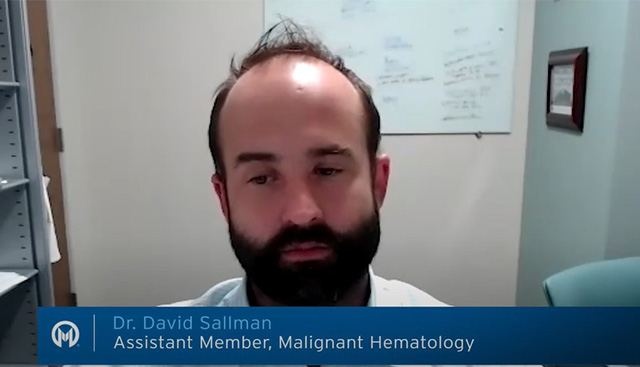
A new type of CAR T called UltraCAR-T™ potentially a therapy for myeloid malignancies
A phase 1b study that was presented at the 2021 American Society of Hematology annual meeting looks at the safety and efficacy of a new type of CAR T called UltraCAR-T™ therapy for myeloid malignancies. UltraCAR-T cells express CD33 and membrane bound IL-15. And unlike current CAR T cells, which utilize viruses to attach the CAR to the T cells, UltraCAR-T uses a nonviral gene delivery system and a rapid manufacturing process.
The study is testing if UltraCAR-T is safe and effective for two sets of myeloid patients: those who receive lymphodepleting chemotherapy prior to the treatment and those who don’t. So far, low dose levels of the treatment have showed promising results with good safety, no manufacturing failure and some early evidence of clinical activity. UltraCAR-T also has a kill switch for safety. Because all of the main targets for MDS and AML are also expressed on normal stem cells, there is a concern the treatment could also attack healthy cells and eliminate the body’s ability to make blood. The kill switch would stop the treatment and eliminate the CAR if ultimately needed. There has been no usage of the kill switch to this point.
“These patients are often critically sick with severely low blood counts,” said Dr. David Sallman, a hematologist in the Malignant Hematology Program at Moffitt Cancer Center. “A lot of these patients can’t wait for a traditional CAR T-cell manufacturing process that takes three to four weeks.”
“The CAR product is unique in that from leukopoiesis until infusion only takes two days,” said Sallman, the trial’s principal investigator. “This is done through a rapid manufacturing process with electroporation utilizing a sleeping beauty plasmid, ultimately making a CAR T cell targeting CD33. Importantly, it also has membrane bound IL-15 incorporated to allow for in vivo proliferation within the patient.”
PRGN-3006 UltraCAR-T cells targeting CD33 have been well tolerated with low grade CRS. In the setting of mbIL15, there has been a dose-dependent robust expansion and durable persistence of PRGN-3006 with encouraging responses (50%) in patients treated following lymphodepletion. Enrollment is ongoing to DL4, and updated safety, efficacy, PK/PD and cytokine data to be presented.
If you’d like to refer a patient to Moffitt Cancer Center, complete our online form or contact a physician liaison for assistance. As part of our efforts to shorten referral times as much as possible, online referrals are typically responded to within 24 - 48 hours.
